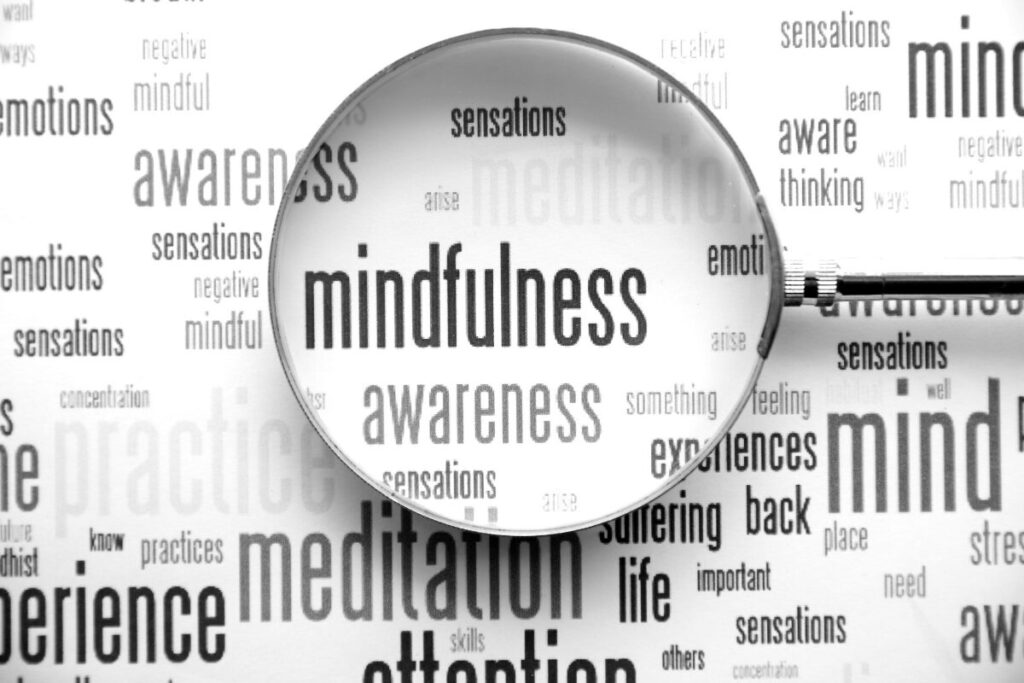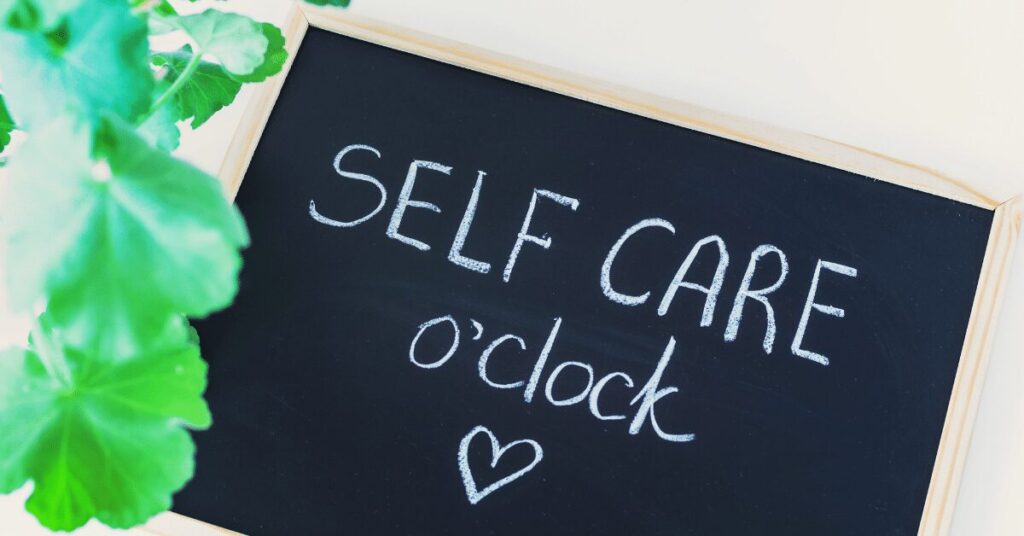We know radars are highly sophisticated instruments that can detect the smallest details at the farthest and deepest depths, but did you know that you also have a natural Radar system built within? It’s simple to overlook the most expertly tuned instrument in our bodies in our fast-paced lives.
Being in sync with your body is crucial for optimum health and energy. Listen to your body; it is your first defense against illness and imbalances. Your body has the incredible ability to let you know when anything is wrong. When something feels off or unsettling, it’s like a whisper or soft nudge from within telling you to pay attention. This article will explore listening to your body and how listening to it can lead to optimal health and well-being.
Table of Contents
What Is My Body’s Radar and Why Does It Matter?

Your body’s radar is a sophisticated internal monitoring system that goes beyond the physical realm. It can pick up on small changes and imbalances that may stem from physical as well as psychological factors. There is a profound mind-body connection, as your thoughts, emotions, and physical sensations all influence each other.
Being in sync with your body’s radar matters because it lets you detect issues early and take action before they escalate. Listening provides insights into what your body needs to function at its best. It also fosters a deeper mind-body connection.
How Do I Listen to My Body’s Signals?
One fascinating aspect of your body’s radar is cravings. Have you ever experienced an intense desire for a specific type of food? These seemingly odd cravings may be your body’s way of communicating its nutritional needs. Cravings have been linked to dietary deficiencies, meaning that your body may signal that it requires certain nutrients in the foods you yearn for.

Cravings can offer clues into what your body is lacking. While every craving is unique, here are some common nutritional implications:
- Meat cravings may signal a need for iron
- Ice cravings may indicate anemia
- Sweet cravings may signal low blood sugar
- Salty food cravings may indicate a need for electrolytes like sodium and potassium
Of course, not every craving has a straightforward meaning. The key is paying attention and figuring out what your body is trying to tell you. Maintaining a balanced diet can help ensure you meet your nutritional needs.
By paying attention to your cravings and understanding their potential nutritional implications, you can make informed choices to meet your body’s needs and maintain optimal health. Your body’s signals are like lights on a dashboard. They provide you with a warning, but it is up to you to respond with the appropriate action to resolve the issue. Let’s look at some simple steps that you can do to fine-tune the personal connection with your body and address the problems.
What is Mindfulness?

Mindfulness is a practice that can enhance your connection with your body’s radar. It involves cultivating awareness and presence in the present moment. Being mindful can mean the difference between being proactive and reactive. What does this mean for your health?
Being proactive means acting to prevent a disease or disorder from occurring or minimizing the effects of a situation, as opposed to letting a disease or disorder progress to the point where now medical intervention is required, and currently, you can only reactively respond by treating the issue. In short, let’s stop it before it begins.
Practicing mindfulness creates a space to listen to your body’s messages and respond appropriately. Here are some techniques to incorporate mindfulness into your daily life:
Meditation

Meditation is a wonderful method for quieting the mind and tuning into your body. It doesn’t require equipment, special clothes, or hours of commitment. You can meditate for five or ten minutes and begin to feel a difference. Find a quiet, comfortable place, close your eyes, and focus on your breath.
There are endless sources for guided meditations. As you begin to quiet your mind and control your breathing, you want to pay attention to the sensations in your body and reflect on any thoughts or emotions that arise without judgment. Meditation is a game changer. With regular meditation practice, you can enhance your mind-body connection and promote overall well-being. One of my favorite meditation apps is Calm (this is not sponsored or an affiliate link; it’s just a recommendation, so enjoy).
Deep Breathing

Deep breathing exercises help you relax and bring attention to the present moment. The power in developing breathing techniques is powerful. One simple method is to take slow, deep breaths, fill your lungs with air, pause, and then exhale slowly.
As you breathe, direct your attention to the physical sensations in your body, such as the rising and falling of your abdomen or the feeling of air passing through your nostrils. Deep breathing can aid in calming your nervous system and increasing your body’s awareness. Inhale, exhale, and re-center yourself.
Yoga

Yoga combines movement, breath, and mindfulness to promote physical and mental well-being. Yoga practices have become increasingly popular and commonplace in the last few decades. They are no longer a mystical practice of the Yogis but an everyday practice with numerous benefits.
Yoga can help cultivate body awareness, improve flexibility and strength, and reduce stress. Choose a style of yoga that resonates with you and make it a part of your routine. You can search YouTube and find beginners up to advanced yoga practices, or if you are a person who likes groups, check your local listings for yoga studios in your area. If you prefer a yoga technique, also comment below and share it with our Fab to Fit family.
How Else Can I Listen to My Body’s Signals?
Keep a Symptoms Journal
Write down any concerning or persistent physical symptoms or changes you notice. This journal helps you spot patterns and have an accurate record to share with your doctor.
Listen to Your Energy Levels
Take note of when your energy levels dip or spike throughout the day; this can indicate needs like hunger, hydration, rest, or stress. ENERGY FLUCTUATION
Pay Attention to Physical Sensations
Discomfort, pain, or changes in your body may signify imbalances to address. Don’t ignore or push through these signals.
What Should I Eat to Nourish My Body Properly?

A balanced, varied diet is key to getting the nutrients your body requires. Follow these nutrition tips:
- Eat the rainbow – Include fruits, veggies, whole grains, lean protein, and healthy fats at meals and snacks. Get a diversity of colors on your plate.
- Watch portions – Moderate serving sizes and avoid overeating.
- Sample meals – Oatmeal with berries and nuts for breakfast; veggie & hummus whole wheat wrap with soup for lunch; salmon with quinoa and steamed broccoli for dinner.
- Stay hydrated – Carry a water bottle and aim for at least eight glasses of water per day. Add lemon, fruit, or cucumbers for flavor.
- Listen to cravings – Notice if your body signals the need for certain nutrients.
- Get advice – Consult a nutritionist if you have specialized dietary requirements or concerns.
Proper nourishment provides your body with the fuel it requires and supports your internal radar functioning optimally.
One point I cannot stress enough is being cautious of fad diets and dietary restrictions used for a “quick weight fix.” Your body is wired to function as a whole. When you pull a wire from one area to fix another, just be mindful that something or some part of your system suffers the consequences.
How Much Exercise Do I Need?

Regular physical activity keeps your body conditioned, energized, and emotionally balanced. It also enhances mind-body awareness.
Aim to get 30 minutes of moderate exercise at least five days per week; this could include:
- Walking, jogging, or running
- Swimming or water workouts
- Cycling or spinning
- Aerobics or cardio classes
- Strength training
- Yoga or Pilates
- Sports like tennis, basketball, soccer
Pick activities you enjoy and mix them to work different muscle groups and prevent boredom. Taking brief activity breaks throughout your day also counts.
Pay attention to your energy levels and any pain or discomfort signals during and after exercise. Your body’s feedback will guide you in preventing injury and overexertion.
Is sleep really that important?

Adequate sleep is the most neglected and simple way to heal your body. I get it; life is hectic, and with work, personal tasks, and family, getting the proper amount of sleep gets put on the back burner. But rest and restoration are equally crucial for maintaining a harmonious relationship with your body. Have you ever wondered why you need at least eight hours of sleep? That is because your body needs an adequate amount of REM sleep. REM sleep is a cycle of deep sleeping in which dreaming occurs and is important for your brain’s clarity and memory functions.
– John Underwood: Director Life of an AthleteHuman Performance Project Keara White: Research Assistant
Your body needs sufficient rest to regenerate and repair itself. Prioritize quality sleep and create a relaxing bedtime routine that promotes deep and refreshing slumber. At least an hour before bed, avoid electronic stimulation such as cell phones and TVs and opt for a book or soft music. Cutting off electronics will help quiet the mind and engage the relaxation process.
While individual needs vary, adults should aim for 7-9 hours of sleep per night. Getting quality rest ensures your body can function optimally.
Prioritize sleep by having a consistent sleep schedule and relaxing pre-bedtime routine. Limit stimulation from screens, large meals, and high-intensity activities for 1-2 hours before bed.
Listen to your body’s need for rest. Take breaks as needed during the day, and don’t consistently sacrifice sleep. Being well-rested enhances your concentration, mood, and overall health.
When Should I See a Doctor?

Sometimes, your body’s radar may send signals that require professional attention. If you experience persistent or concerning symptoms, seeking guidance from a healthcare professional is essential. This article does not provide medical professional advice, and no commentary or Google search should replace the advice and consultation of a licensed medical provider. They can provide valuable insights, diagnose underlying issues, and recommend appropriate treatments or lifestyle adjustments. Remember, your health and well-being are worth prioritizing; seeking professional help when needed is a proactive step in maintaining them.
Seeking professional medical guidance is important if you have any concerning or persistent symptoms. Do not ignore signs like:
- Chronic pain or discomfort
- Dizziness, weakness, chest pressure
- Changes in bowel or bladder function
- Unexplained weight changes
- Difficulty sleeping
- Low energy lasting weeks
Document your symptoms and be prepared to discuss your health history and lifestyle habits. Your doctor can properly diagnose and treat any underlying issues.
Some additional resources for finding healthcare providers:
- Ask your insurance provider for doctor recommendations
- Check online reviews
- Ask family, friends, and neighbors
- Search databases like Healthgrades or ZocDoc
Prioritizing your health with regular checkups and addressing issues -early allows you to live an active, balanced life.
How can I be in tune with my body?

Being in tune with your body is a lifelong practice that requires active participation, self-awareness, and a commitment to self-care. Your body’s radar is a precious gift, an internal compass guiding you toward optimal health and vitality. By listening to your radar, you can detect imbalances early, address them proactively, and cultivate a deep sense of well-being. Your bodies radar will start to ping when there is the slightest problem and alarm when things are getting critical; you need to be in tune and responsive.
Listen to Your Body: Key Takeaways
- Your body has a built-in radar that sends signals about potential imbalances. Tuning into these messages allows you to be proactive about your health.
- Practice mindfulness, pay attention to cravings and symptoms, keep an energy/symptom journal, and listen to your body during exercise and rest. These are ways to decode your body’s signals.
- Eat a nutritious, balanced diet with ample water, exercise regularly, and get enough high-quality rest to fuel and care for your body properly.
- Seek medical guidance for any persistent symptoms. Don’t ignore your body’s signals.
- Listening to your body’s innate wisdom supports physical, mental, and emotional health. Value this connection as you care for your whole self.
The incredible radar within you provides guidance to live your fullest, healthiest, most vibrant life. Tune in, listen deeply, and honor what your body tells you.
Live Your Life & Love It!! (Listen to it too)
Related Articles: Discovering Your Best Self: A Journey of Personal Transformation
FAQs
-
What does it mean to listen to your body?
Listening to your body means paying attention to signals like cravings, energy levels, physical sensations, mental changes, etc., so you can address potential imbalances early.
-
How does my body communicate with me?
Your body communicates through cravings, symptoms, energy levels, discomfort or pain signals, and changes you notice physically or mentally.
-
How is mindfulness good for your health?
Mindfulness enhances your mind-body connection so you can detect and respond to your body’s signals proactively. Meditation, yoga, and deep breathing are mindfulness practices that reduce stress and promote wellbeing.
-
What are health symptoms?
Health symptoms are changes or sensations in your body that may indicate an underlying issue, like fatigue, pain, dizziness, appetite changes, etc. Keeping track of symptoms helps identify patterns.
-
What is the mind-body connection?
The mind-body connection describes how your thoughts, emotions, and mental state influence your physical body, and vice versa. Your mind and body have a profound, bidirectional relationship.
Medical Disclaimer: This content is for informational and educational purposes only. It is not intended to be a substitute for professional medical advice, diagnosis or treatment. Please consult a qualified healthcare provider for medical advice specific to your condition. Do not disregard professional medical advice or delay seeking it due to information provided here. Seek immediate help if you are experiencing a medical emergency.









